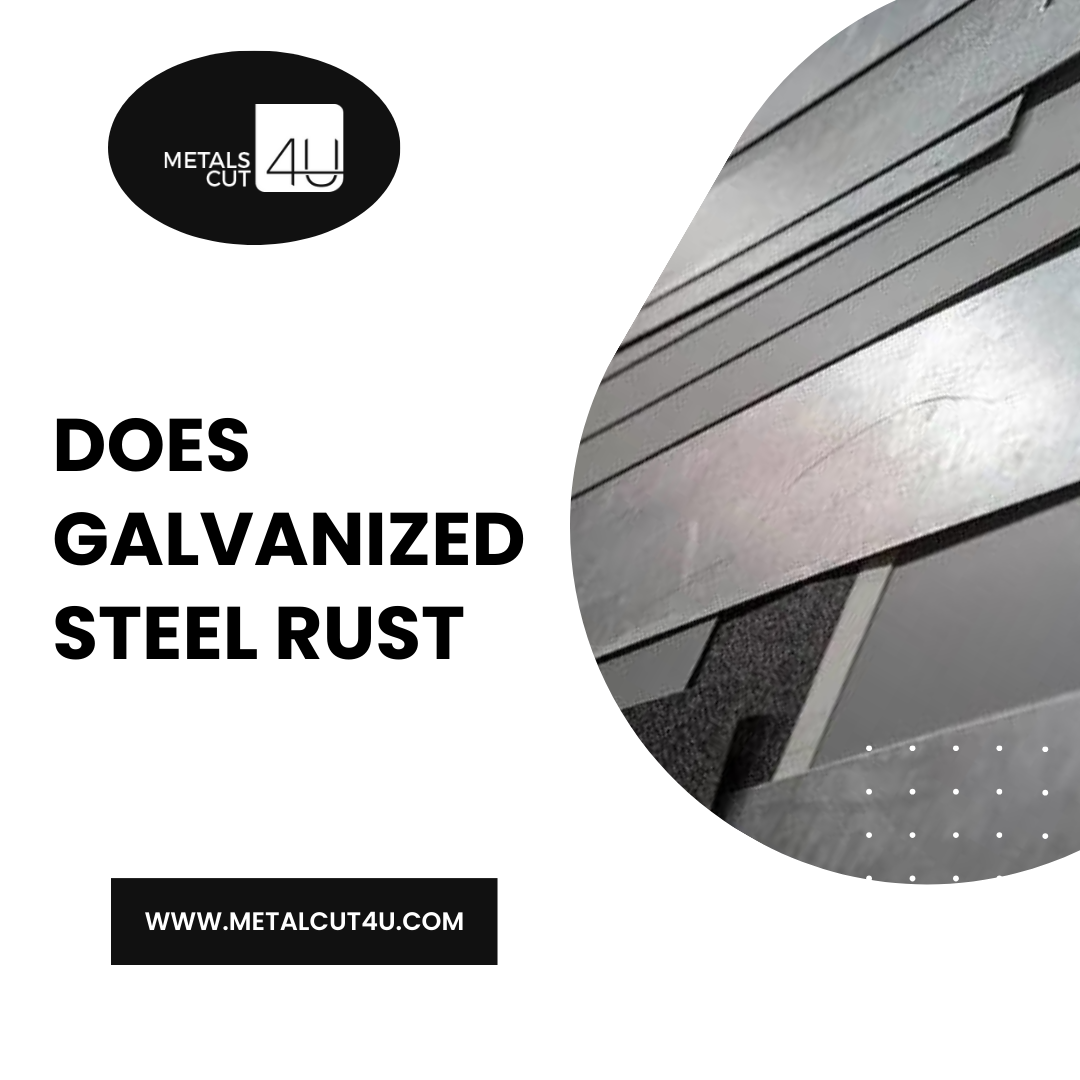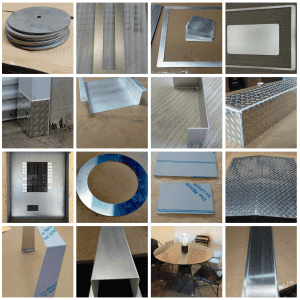Does Galvanized Steel Rust

Galvanized steel is widely used in construction, household items, and various other sectors. Renowned for its corrosion resistance, galvanized steel often sparks confusion regarding its susceptibility to rust.
In this detailed guide, we delve into the intricacies of galvanized steel, its properties, manufacturing process, longevity, and the factors influencing its susceptibility to rust.
What Does Galvanized Mean?
Before we discuss whether galvanized steel rusts, it's crucial to grasp the concept of galvanization.
Galvanization is a process wherein a protective zinc coating is applied to steel to prevent rusting. This coating acts as a sacrificial layer, corroding before the steel underneath, thus providing an additional shield against oxidation.
Can Galvanized Steel Rust?
Despite the protective zinc coating, galvanized steel can still rust under certain circumstances. However, the rate of corrosion is significantly slower compared to untreated steel. Factors such as exposure to harsh environmental conditions, damage to the coating, and the thickness of the zinc layer can influence galvanized steel's susceptibility to rust.
Is Galvanized Steel Rust Proof?
While galvanized steel offers excellent resistance to corrosion, it is not entirely rust-proof. The protective zinc layer can degrade over time, especially in aggressive environments such as coastal areas or industrial settings. Regular maintenance and inspection are essential to ensure the longevity of galvanized steel structures.
How Galvanized Steel is Made
Galvanized steel is produced through a meticulous process known as galvanization, which imparts it with remarkable corrosion-resistant properties. This process involves several steps to ensure the formation of a protective zinc coating on the surface of the steel:
Surface Preparation: The process begins with preparing the steel surface to ensure optimal adhesion of the zinc coating. The steel undergoes thorough cleaning to remove contaminants such as dirt, grease, oil, and rust. This step is crucial to ensure that the zinc coating adheres uniformly to the steel surface, preventing any potential weak spots that could compromise corrosion resistance.
Galvanizing Bath: Once the steel surface is cleaned and prepared, it is immersed in a bath of molten zinc at temperatures generally ranging from 440°C to 460°C (825°F to 860°F). This galvanizing bath contains pure zinc or a zinc alloy, depending on the desired properties of the galvanized steel. The immersion process allows the steel to be completely coated with molten zinc, ensuring thorough coverage of all surfaces.
Chemical Reactions: Chemical reactions occur between the zinc and the steel surface as the steel is immersed in the molten zinc. These reactions form a tightly bonded zinc-steel alloy layer known as the galvanized coating. The zinc coating acts as a sacrificial anode, which corrodes preferentially to protect the underlying steel from rust and oxidation.
Formation of Zinc Oxide and Zinc Hydroxide: Upon exposure to air, the freshly galvanized steel reacts with oxygen to form zinc oxide (ZnO) and zinc hydroxide (Zn(OH)₂) on the coating's surface. These compounds provide additional protection against corrosion by creating a physical barrier that impedes moisture penetration and other corrosive agents.
Cooling and Inspection: The galvanized steel is allowed to cool gradually to room temperature after the galvanizing process. Once cooled, it undergoes a thorough inspection to ensure uniformity of the zinc coating and adherence to quality standards. Any defects or irregularities in the coating are addressed through corrective measures to ensure the integrity of the galvanized steel product.
How Long Does Galvanized Steel Last?
The lifespan of galvanized steel varies depending on several factors, including the thickness of the zinc coating, exposure to corrosive elements, and maintenance practices. Generally, galvanized steel structures can last 50 to 100 years, making them popular for outdoor applications such as fencing, roofing, and infrastructure.
Factors Affecting Galvanized Steel
Several factors can influence the corrosion resistance of galvanized steel:
Quality of the Zinc Coating: The effectiveness of galvanized steel in resisting corrosion largely depends on the quality of the zinc coating applied during the galvanization process.
A thick, uniform coating provides better protection against rust than a thin or uneven coating. Quality control measures during the galvanization process are essential to ensure consistent coating thickness and adherence to industry standards.
Presence of Contaminants: Contaminants on the surface of galvanized steel can compromise its corrosion resistance. Dirt, grease, oil, and other pollutants can hinder the bonding of the zinc coating to the steel surface, leaving it vulnerable to rust formation. Proper cleaning and surface preparation before galvanization are crucial to remove contaminants and ensure optimal adhesion of the zinc coating.
Temperature Fluctuations: Extreme temperature fluctuations can impact the performance of galvanized steel. Rapid temperature changes can cause thermal expansion and contraction, leading to stress on the zinc coating and potential cracking or delamination. Additionally, exposure to high temperatures can accelerate the corrosion rate of galvanized steel, especially in industrial environments where heat-generating processes are present.
pH Level of the Surrounding Environment: The pH level of the surrounding environment can influence the corrosion resistance of galvanized steel. Highly acidic or alkaline conditions can accelerate the breakdown of the zinc coating, leading to localized corrosion and eventual rust formation.
Monitoring and controlling the pH level of the environment, especially in applications such as water treatment facilities or chemical processing plants, are essential for preserving the integrity of galvanized steel structures.
CONFIGURE IN 4 EASY STEPS
The Science of Self-Healing Properties
One surprising aspect of galvanized steel is its ability to self-heal when scratched or damaged. The zinc coating on the steel surface can react with atmospheric oxygen and moisture to form zinc oxide, which acts as a barrier against further corrosion. This self-healing mechanism contributes to the overall durability of galvanized steel structures.
Impact of Local Environmental Conditions on Galvanized Steel
The performance of galvanized steel can vary depending on the local environmental conditions. High humidity, exposure to saltwater, industrial pollutants, and extreme temperatures can accelerate the corrosion process and compromise the integrity of the zinc coating. Regular inspections and corrosion prevention measures are essential for mitigating these risks.
Discover the strength and versatility of carbon steel sheet metal!
Custom Metal Cutting Services by MetalsCut4U
MetalsCut4U offers custom metal-cutting services tailored to your specific requirements. With 14 different shapes and forms, including stainless steel rectangles, our expertise extends across various forms and shapes.
Our commitment to precision cutting, bending, and welding ensures you receive stainless steel sheet metal crafted to your specifications.
Whether you're seeking food-grade stainless steel or any other specialized material, we have the flexibility and expertise to meet your needs.
Call 440-822-6381 for reliable custom metal-cutting services that consistently surpass expectations!
FAQs
Does galvanized metal rust?
Galvanized steel metal can rust, although at a slower rate compared to untreated steel.
How long does it take for galvanized steel to rust?
The timeframe for galvanized steel to rust depends on various factors, but it generally lasts several decades before significant corrosion occurs.
Is galvanized steel corrosion-resistant?
Yes, galvanized steel is corrosion-resistant due to the protective zinc coating applied during the galvanization process.
What does galvanized steel mean?
Galvanized steel is coated with a zinc layer to prevent rusting and corrosion.
Does galvanized rust?
Galvanized steel can rust under certain conditions, although its corrosion resistance is significantly higher than untreated steel.
